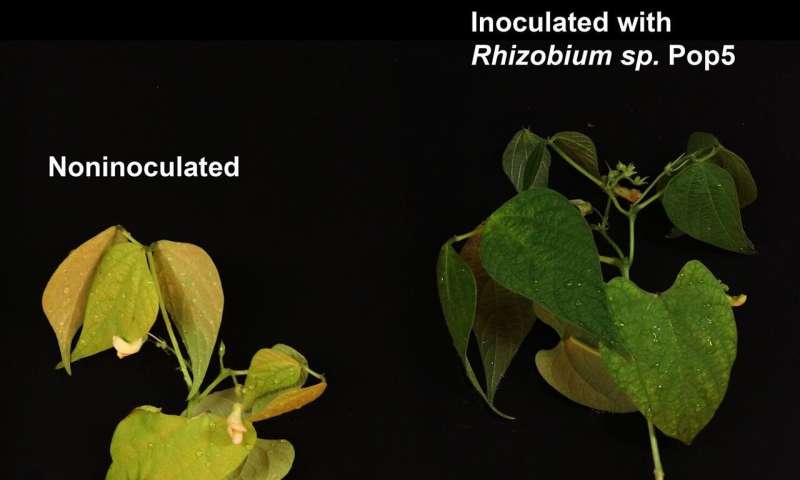Researchers have found a new antibiotic molecule produced by a bacterium that lives in Mexico’s rainforest, which is contained in wild beans and is a potentially interesting discovery for agriculture.
A new bacterium
The phenomenon of antibiotic resistance is proving increasingly worrying for humans. Nevertheless, this one also concerns the animals as well as the plants. This worrying situation is pushing Science to look for new molecules that can fight bacterial infections. In the October 8, 2019 publication in Nature Communications, a new antibiotic molecule was discovered by scientists at Rutgers University (Canada).
It is a molecule produced by an unknown bacterium belonging to the Rhizobium family. However, this bacterium is found in wild beans Phaseolus vulgaris, growing in the rainforest of Mexico. Thus, the molecule was named Phazolicine, a term naturally taking the name of the wild beans in question.
An angel-guardian bacterium
Bacteria of the family Rhizobium have the ability to enter into symbiosis with plants of the fabaceae family (beans, soybeans, peanuts, peas, etc.). But bacteria provide plants with nitrogen, which strengthens them. However, the unknown bacterium has a characteristic that others do not have. Indeed, the latter releases phazolicin to protect the plant from other harmful bacteria sensitive to the molecule! Canadian researchers believe that phazolicin could be used as a plant probiotic. In other words, the molecule could help prevent the growth of bad bacteria in farms.
For now, scientists are certain that the structure of phazolicin is related to the ribosome of the bacteria. Now, this ribosome is nothing more than a kind of plant in which the cell produces proteins. Researchers believe that by genetically modifying the ribosome, the latter could make it possible to control the performance of the antibiotic molecule. Finally, this research is only beginning, so that the future will tell us if these will lead to a concrete application.




